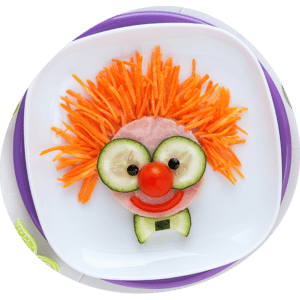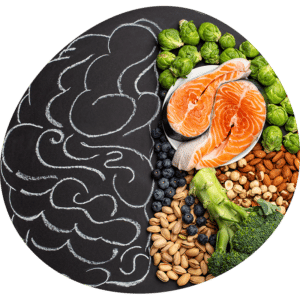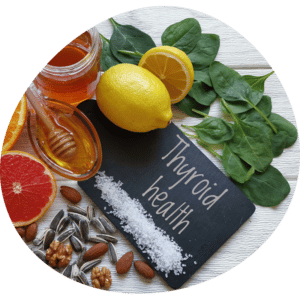If you are having trouble either falling asleep, waking throughout the night, or waking too early, this can be the main obstacle to wellness for you. It is while you sleep that your body repairs and regenerates.
Melatonin plays an important role, not only in sleep but it has also been linked to cancer prevention as it is a powerful antioxidant. A lack of sleep can make you tired, anxious, depressed, and crave unhealthy foods, such as sugar as you are looking for an alternate energy source, which left unchecked, can lead to obesity.
Adequate sleep is essential for your immune system, and stress response and can be protective against conditions related to aging, such as dementia. If you aren’t getting the recommended 7 to 8 hours of sleep each night, work your way through this list to not only feel more energized but also to prevent ill health from being more likely in the future.
1. LOSE THE LIGHT AFTER DARK
Research shows that light (particularly blue light), interferes with your brain’s production of melatonin. Avoid screen time after dark, but if you must, then use a blue light filter (like FLUX), and turn down the brightness. Switch light globes in the bedroom to red or warm glow bulbs if you can, as red light has the least impact on melatonin production. Sleep masks can work wonders to aid melatonin production if you have small amounts of light in the bedroom. Even the standby light on the TV can affect sleep. Try not to use any devices after the sun goes down.
2. TUNE DOWN THE NOISE
Block out ambient noise. Your brain is performing constant surveillance to ensure that you are safe. Try white noise or earplugs.
3. TURN THE HEAT DOWN TO 18°C
According to science, this is the best temperature to assist with a good night’s sleep.
4 DO WHAT YOU NEED TO DO TO FEEL SAFE
As mentioned above, your brain continues to try to keep you safe while you are sleeping. Perhaps all that is between you and a good night’s sleep is a new lock on your doors and windows? Also, try thinking happy thoughts while drifting off.
5. RESTRICT THE BEDROOM TO SLEEP ONLY
This creates a sleep association. See bed, feel tired. A sleep routine is key to this. Do the same things leading up to sleep time every night so your subconscious mind knows that it is preparing for bed, and starts to switch the parasympathetic nervous system on to rest and digest mode. Try a warm bath with Epsom salts and some lavender essential oil, a good book, then bed as an easy, sleep-inducing bedtime routine. It is also important to train your body to go to sleep and wake at the same time each day, so make sleep time and the time the alarm goes off in the morning, the same time every day.
6. GET SOME EXERCISE
Not only will exercise boost your sleepiness at night, but it will boost your overall health. Avoid any heavy cardio in the afternoon or evenings, as this can increase cortisol levels, which won’t help with sleepiness. Bright sunshine in the mornings also helps with the setting of your circadian rhythm, so combining exercise and bright light in the mornings is a double whammy.
7. NO DAYTIME NAPPING
Most people need between 7 and 8 hours sleep per 24-hour period. Getting it in one solid block is optimal.
8. TRY MEDITATION
To quieten that busy mind, meditation may be the best solution to your sleep problems. Meditation helps to bring elevated cortisol levels down, which is a big culprit for sleep disturbances. Start with just 10 minutes before bed. Can’t think of anything worse? Maybe counting sheep or sleep hypnosis is your thing?
9. CHIROPRACTIC ADJUSTMENTS CAN HELP
Ask me for a recommendation of a fantastic local Chiro.
10. GO TO BED WHEN TIRED
Don’t push through. Prioritize sleep. That pressing deadline will get completed a lot more effectively if you are getting adequate sleep. A second wind means your cortisol has peaked again, which when done regularly, re-trains the circadian rhythm to an abnormal pattern. Cortisol is supposed to be high in the morning and low at night.
11. TAKE AN WARM BATH
Add some Epsom salts and lavender oil to it, as this will push the nervous system into a resting state by relaxing those muscles.
12. BUSY MIND? MAKE A LIST
Make a list if all the things you need to achieve the next day to stop you from ruminating about it all night!
13. NO SNACKING AT NIGHT
Night time is about resting, not digesting. Also, contrary to what many people believe, alcohol does not help you get a better night of sleep. Even though it may help you get to sleep a little easier, alcohol prevents you from entering the deep sleep phase, which is one of the reasons you feel a little shabby the day after a couple of drinks.
14. AVOID CAFFEINE AFTER MIDDAY
If you are sensitive to caffeine and are a slow metaboliser, you may need to avoid caffeine entirely. Caffeine sources include chocolate, tea, green tea, coffee, cacao, and cocoa.
15. AVOID EMFs
Some people are sensitive to electromagnetic fields. If your bed is near a motor i.e. the fridge or a power source i.e. the meter box, shift the bed to another position in the bedroom. Also pop your WIFI router on a timer so that all the WIFI switches off at bedtime. You may also want to move your bedroom to another room if it is near a major street power source like high voltage power lines. Make sure your phone is charged in another room, or at least set to airplane mode. Ask me for a recommendation of a great Building Biologist if you think this is an issue for you. A magnesium supplement can help with EMF sensitivity sometimes.
16. EARLY BIRD?
If you are waking at 4am, you may need to get some bright light (about half an hour) at around 7pm to help reset the circadian rhythm. Only do this is sleep onset isn’t an issue for you and you tend to go to sleep on the early side, but then as a consequence, wake early. You may also want to wear blue blocker sunglasses in the morning hours.
17. NIGHT OWL?
If you can’t get to sleep until late at night, wearing blue blocker sunglasses from midday onwards may help you get some shut-eye a little earlier.
18. DIETARY TIPS FOR MAKING SLEEP HORMONES:
The 2 main neurotransmitters involved in sleep are melatonin which makes you sleepy and GABA which keeps you asleep and opposes cortisol. Both of these neurotransmitters require amino acids, minerals and vitamins for their production. The building block for GABA is glutamine. Good sources of glutamine include animal protein, protein powders, spinach, cabbage and legumes. The building block for melatonin is tryptophan. Good sources of tryptophan are meats, eggs, protein powders, nuts, seeds and spirulina. Sour Cherry has small amounts of melatonin in it, so drinking some sour cherry juice after the sun sets, may help you reach the land of nod more effectively.
19. BALANCE YOUR BLOOD SUGAR AND IMPROVE YOUR HORMONES
A diet high in sugar can really disrupt your cortisol, and as hormones and neurotransmitters are an intricate and interconnected symphony, when one hormone is high or low, the others are also affected. Try cutting out processed sugars, white bread or pasta and eating good quality protein and fats with every meal to help keep blood sugar stable. If you are craving sugar, then have a chat to me about a supplement that can be used short term while your biochemistry is balanced using diet.
If you do all of this and you still can’t get enough good quality sleep, it is time to try some herbal and nutritional therapies. Chat to me about these at your next appointment.
Share this Blog
If you enjoyed this article share it across your socials









